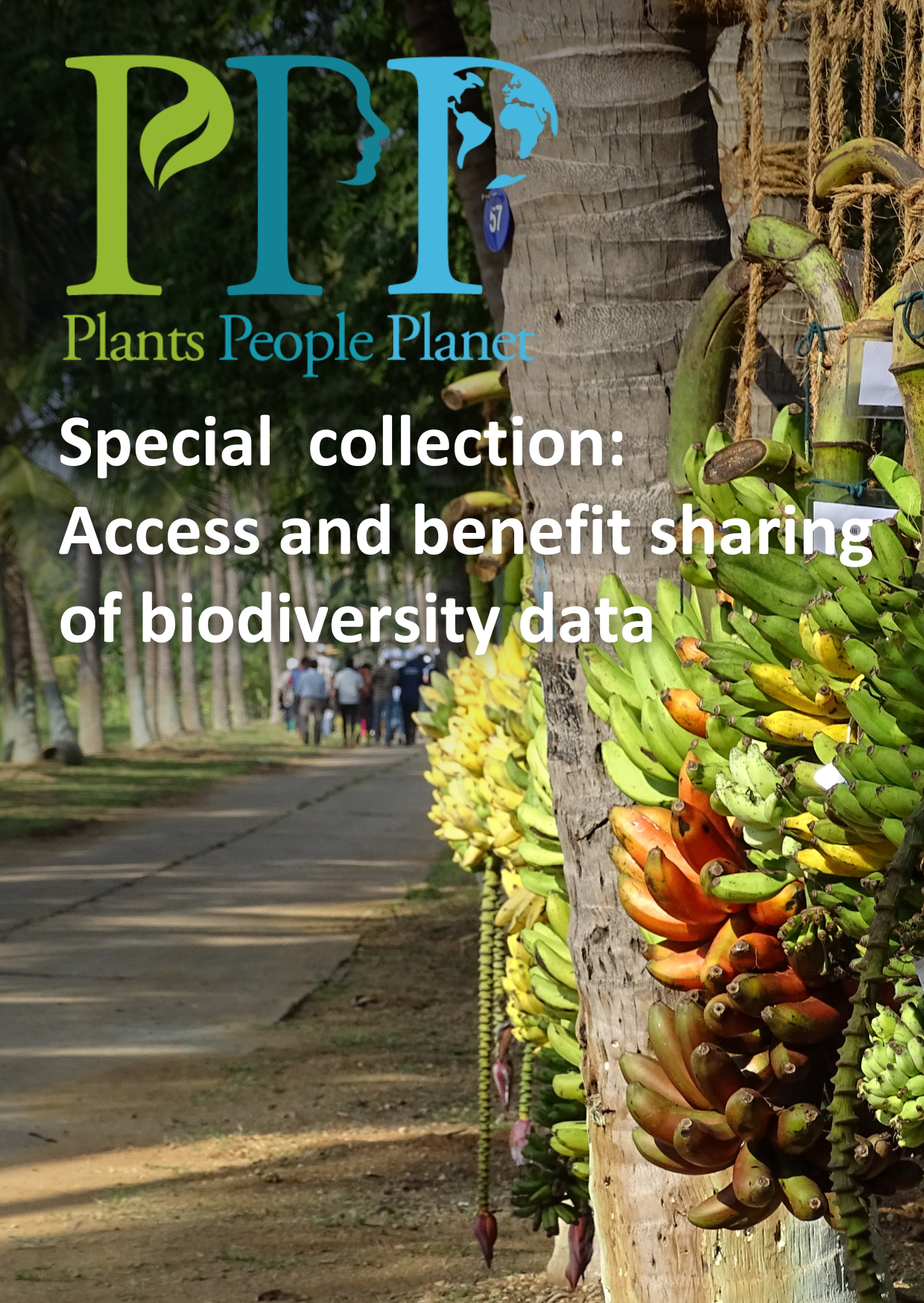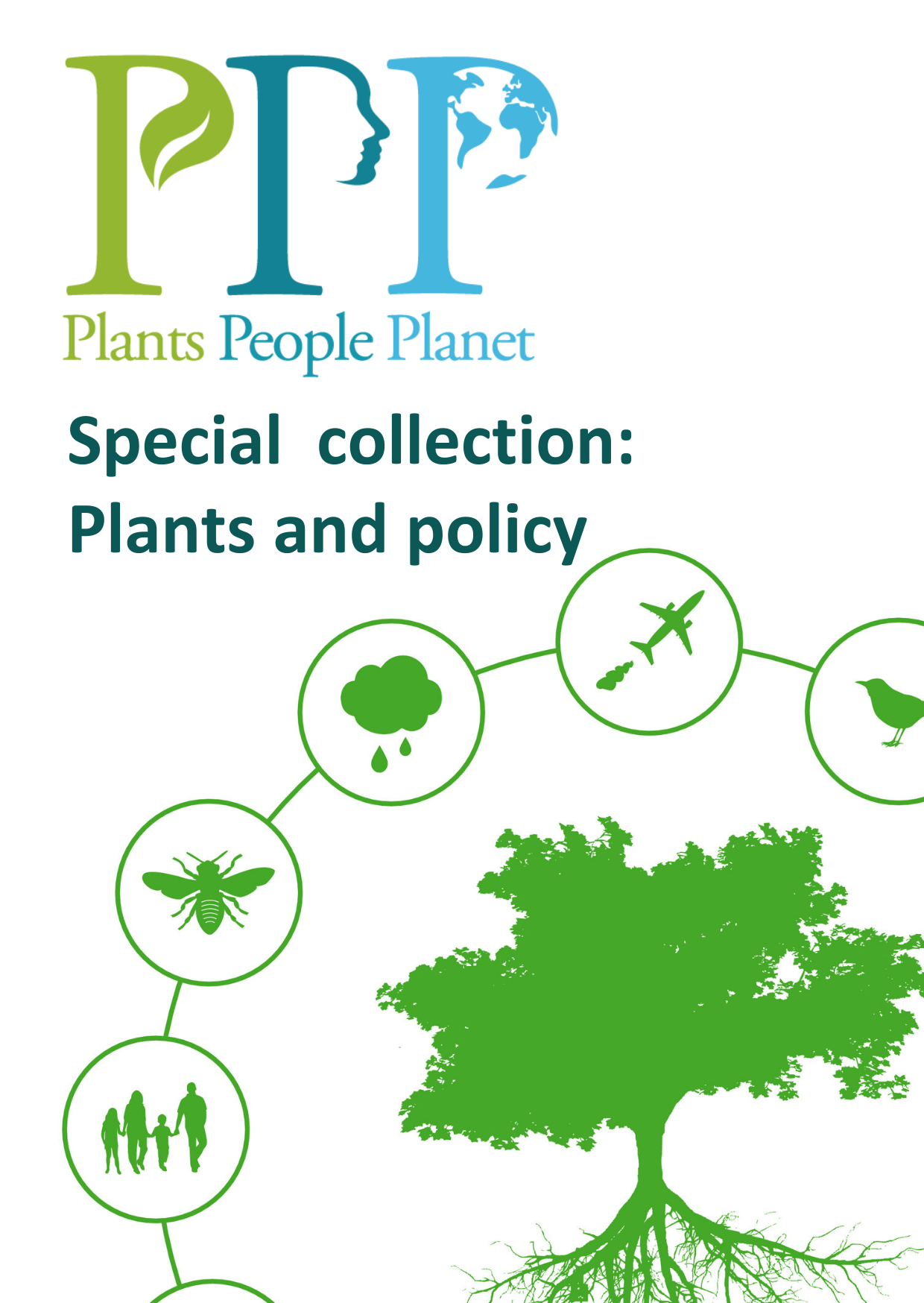Joint calls (New Phytologist and Plants, People, Planet)
There are currently no open joint calls for papers – please sign-up to our mailing list to be notified when a new joint call for papers is announced. Scroll down to browse previous calls for papers.
New Phytologist
There are currently no open calls for papers in New Phytologist – please sign-up to our mailing list to be notified when a new call for papers is announced. Scroll down to browse previous calls for papers.
Plants, People, Planet
Brief Author Guidelines for Special Collections
Brief guidelines for Special Collections are given below, however, please refer to the respective journal's full Author Guidelines for final preparation as these contain detailed information on how to compile the electronic version of your manuscript, style and legal requirements.
Manuscripts that are to be considered for New Phytologist Special Collections should conform to the full Author Guidelines.
It is important to note that Special Collection submissions are treated in exactly the same way as regular manuscripts submitted to the journal (i.e. they will go through the same peer review system as regular manuscripts and acceptance is not guaranteed). Special Collection manuscripts must therefore focus on timely research that provides new insights into the broad principles of plant science. In addressing such questions, research manuscripts will focus entirely on the presentation of new data (mixed part review / part data papers are not encouraged). The word limit for research manuscripts is 6500 words.
Synthesis and Modelling / Theory papers will generally fall into the research manuscript category and the headings can be adapted accordingly (e.g. in the case of Modelling / Theory papers, include a heading of Description in place of Materials and Methods, to include description of the model or theoretical framework).
New Phytologist also publishes a number of additional formats under the Forum and Review sections. These are generally commissioned ahead of time, but please do get in touch with Holly Slater, Senior Commissioning Editor, should you have any suggestions.
All manuscripts submitted for consideration in Plants, People, Planet should conform to the journal’s Author Guidelines. Submitted manuscripts will be subject to peer review and must meet the aims and scope and quality criteria of the journal. In particular, all manuscripts should consider the wider implications / impact of the work for people, society and the planet, including any implications for policy and / or practice. These aspects will be considered by the editor and reviewers when evaluating manuscripts and should be at the forefront of works, including in the 100-word Societal Impact Statement on the title page of the submission. We especially welcome:
Review articles. These tend be in the region of 4000 words, with up to six figures, however, please note that the journal has no strict limits on word length and number of figures / tables.
Research articles, which should report new and interesting insights into the relationships between plants, people and planet. Generally, research articles are in the region of 3500–4000 words, however, as above we have no strict limits.
Methods and Techniques provide a forum for novel inter- and trans-disciplinary approaches for researchers, practitioners and educators at the interface between plants and society. Methods and Techniques are generally in the region of 3500–4000 words.
Brief Reports highlight preliminary findings of research in progress, or a case report of particular interest. Brief Reports are usually in the region of 1500 words, with 20 references and two display items.
Plants, People, Planet also publishes additional formats. Please do get in touch with Bennett Young, Managing Editor, should you have any suggestions.
To ensure inclusion within the Special collection all manuscripts must be submitted by the submission deadline as outlined in the relevant call for papers, and any subsequent dates set for the submission of revised manuscripts following peer review.
We appreciate that the extent of revisions required for different manuscripts may vary and our publication schedule is set to accommodate this. However, whilst we will do all we can to expedite the process of those manuscripts rejected with resubmission encouraged, out of fairness to all authors and to maintain timeliness, we cannot guarantee inclusion within the Special Collection. We would of course include your article in the next available regular issue once accepted. We therefore advise you to submit your manuscript by the deadline if possible.
Previous calls for papers
News
Call for papers: New Phytologist Special Collection on Stomata
Abstract submission deadline: 14 February 2025. Manuscript submission deadline: 30 June 2025.
News
Joint call for papers: Ecological and evolutionary consequences of plant–fungal invasions
Deadline: 31 January 2025.
News
Plants, People, Planet call for papers: Innovation in plant and soil sciences to tackle critical global challenges
Abstract deadline extended! Submit your abstract by 19 August 2024.
News
New Phytologist call for papers: Nectar and nectaries
We're inviting manuscripts for a Special Collection in New Phytologist. Deadline: 30 September 2024.
News
Joint call for papers: Harnessing the benefits of specimen digitisation
Submit your abstract for a joint special issue of New Phytologist and Plants, People, Planet by 6 May 2024.
News
Plants, People, Planet call for papers: Grapes – global status and future potential
A call for papers for a Special Collection in Plants, People, Planet. Deadline: 30 April 2024.
News
Plants, People, Planet call for papers: Methodologies for investigating plant awareness
Call for papers for a Special Issue of Plants, People, Planet. Deadline: 2 April 2024.
News
Call for papers for a joint Special Collection: Anthromes and terrestrial carbon – from the deep past to net-zero
Manuscript submission deadline: 1 March 2024.
News
New Phytologist call for papers: Mycorrhizal research now – from the micro- to the macro-scale
We are opening a call for papers for a Special Issue of New Phytologist. Deadline: 30 June 2023.
News
Plants, People, Planet call for papers: The history of crop science and the future of food
Submit your manuscripts for a special issue of Plants, People, Planet! Deadline: 31 March 2023.
News
Plants, People, Planet call for papers: Forgotten crops, agricultural change and food heritage
Submit your manuscript to Plants, People, Planet by 31 January 2023.
News
Plants, People, Planet call for papers: Parasitic plants, people and planet
Submit your manuscript to Plants, People, Planet by 28 February 2023.
News
Plants, People, Planet call for papers: Agricultural biotechnology
Submit your abstracts for consideration in Plants, People, Planet by 1 October 2022!
News
Plants, People, Planet call for papers: Madagascar's grassy biomes, from Holocene to Anthropocene
Submit your abstracts for a Plants, People, Planet special issue! Deadline extended: 31 January 2023.
News
Joint call for papers: Global plant diversity and distribution
Deadline: 31 August 2022.
News
Plants, People, Planet call for papers: Urban horticulture
We welcome submissions for a special issue of Plants, People, Planet by 1 November 2022.
News
Plants, People, Planet call for papers: Global Tree Assessment – special issue
Call for papers for a special issue of Plants, People, Planet. Deadline: 31 January 2022.
News
Plants, People, Planet call for papers: Fruit in focus
Submit your manuscripts for a fruit-focused special issue in Plants, People, Planet! Deadline: 15 March 2022
News
New Phytologist call for papers: Impact of global change on the plant microbiome
Deadline: 31 July 2021.
News
Plants, People, Planet call for papers: Crop digital information - sharing access and benefits
We are receiving manuscripts for a special issue of Plants, People, Planet.
News
Plants, People, Planet call for papers: Mycorrhizas for a changing world – sustainability, conservation and society
Deadline: 30 June 2020.
News
New Phytologist call for manuscripts: Flooding
New Phytologist will consider submissions for a Special Collection on Flooding. Deadline: 1 October 2019.
News
New Phytologist Special collection on Oak genomics: Call for Manuscripts
To celebrate the publication of the Oak genome, New Phytologist will be publishing a special collection. Deadline: 1 December 2018.
News
New Phytologist call for papers: Special Collection on mycorrhizal function
Deadline: 1 November 2017.
News
New Phytologist call for Manuscripts: Special collection on Plant volatiles
We are accepting submissions for a Special collection on Plant volatiles. Deadline 1 October 2016.
News
New Phytologist Special Issue on Plant developmental evolution: Call for Manuscripts
We are accepting submissions for a Special Issue to celebrate the 37th New Phytologist Symposium. Deadline: 1 September 2016.
News
New Phytologist call for papers: Eucalyptus genomics
Deadline: 15 July 2014.
News
New Phytologist call for Papers: Ecology and Evolution of Mycorrhizas
Deadline: 30 June 2014.


